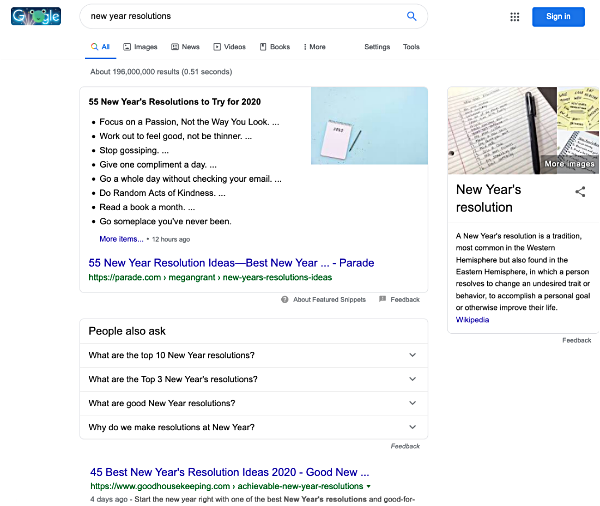- By Dan Veaner
- Opinions
 Print
Print 
80% of New Year's resolutions fail. They don't just fail some time during the year -- they fail by February. So this optimistic tradition actually is a depressing commentary on human failure. Plan to lose weight after the holidays? Forget it. You may lose a few pounds in January until life becomes... well... life, and you take up the heavy-ward trajectory you left for a short while in January. By the way, getting in good physical shape is one of the most popular New year's resolutions.
And then there are financial resolutions. A Wallethub survey found that men's number one financial resolution is to save more money, while for women it is to pay off debt. The least surprising finding is that seven out of ten people admitted they cheated on past New Year's resolutions, and, perhaps also not surprising, conservatives are 2 1/2 times less likely to think it is OK to adjust New Year's resolutions during the year than liberals. And people who were born between the '80s and early 00s are going to hate this: Millennials are twice as likely as baby boomers to break a resolution due to laziness.
57% of recipients were likely to make health their number one resolution, while 39% vowed to improve their finances. More people (19%) chose to make no resolutions than those who made resolutions about education (14%). Probably because of the high cost of colleges these days, which would put a dent in resolutions about improving finances.

In the old days we felt pressure to come up with good resolutions. Because if you didn't have the answer to "What are your resolutions for next year?" at the New year's party, you somehow felt you had already failed to make the new year better. Today all you have to do is Google 'new year resolutions' and a plethora of publications will tell you what to resolve.
You can also use Google to hedge your bets -- some articles tell you which resolutions are statistically most likely to be kept. You can also learn which resolutions people are least likely to keep. Ridding yourself of habits tops the list with, followed by health, financial, educational , and relationship resolutions. In the Wallethub survey 60% of respondents said they have a 50/50 chance of actually keeping to their resolutions, while 15% said nope, not likely at all. Only 47% said they thought they would keep their resolutions for the whole year. But a whopping 72% admitted they had cheated on New Year's resolutions in the past.
If you want a 100% guarantee that you will feel good about your New Year's resolutions, there is actually a way to do it. Remember that 19% that said they made no resolutions at all? They are on to something. They have a 100% chance of not failing to maintain their resolutions through December 31st, 2020. What a great way to start a new year -- knowing with absolute certainty that you will not fail!
v16i1



